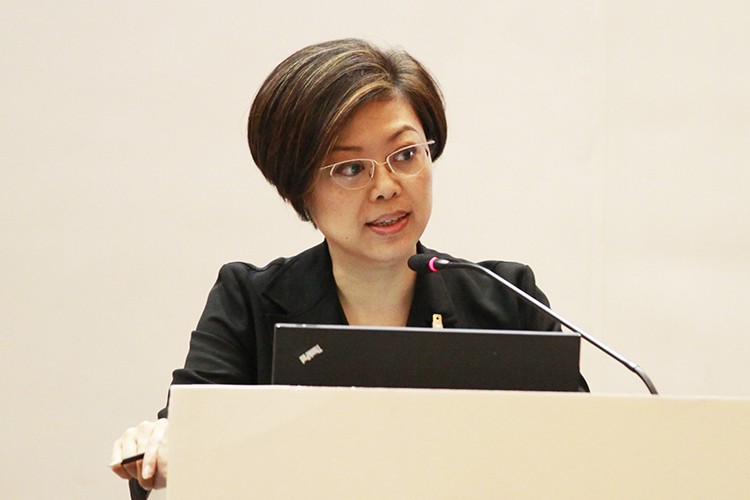The Hong Kong Bar Association and legal scholar Johannes Chan Man-mun have said that Beijing’s interpretation of the Basic Law will have a serious impact on the territory’s judicial independence.
The legal professionals’ statements were made in response to recent news reports that China’s top legislative body will issue an interpretation of Hong Kong’s mini-constitution this week in order to bar two localist lawmakers from retaking their oaths.

Article 158 of the Basic Law confers the power of interpreting the Basic Law on the Standing Committee of the National People’s Congress (NPCSC). In other words, the NPCSC’s opinions are final and legally enforceable.
‘Critical implications’
The Bar Association said on Wednesday that an NPCSC interpretation would deal a “severe blow” to Hong Kong’s judicial independence, as well as “seriously undermine” the confidence of Hongkongers and the international community in the One Country, Two Systems policy, which guarantees the territory a high degree of autonomy.
“The irreparable harm [an interpretation] will do to Hong Kong far outweighs any purpose it could possibly achieve,” the Bar Association said.
It added that Hong Kong’s court is capable of arriving at a fair ruling on the legal issues relating to the oath and the powers of the Legislative Council president.
“The Bar implores the NPCSC to exercise the highest degree of restraint in handling this highly sensitive incident as its gesture will have critical implications on One Country, Two Systems,” it said.

The Bar’s chair, Winnie Tam Wan-chi, previously said that members of the Bar tried to persuade senior Chinese official Li Fei that Hong Kong’s legal framework is sufficient for handling the dispute during their visit to Beijing last month.
‘Direct attack’
HKU law professor Johannes Chan said in a Commercial Radio programme on Wednesday that an NPCSC interpretation will seriously undermine the rule of law in Hong Kong.
Chan said that compared to the four NPCSC interpretations in the past, the potential interpretation in this case is more serious as the matter is being handled by Hong Kong’s court.
“If Beijing interprets the Basic Law before the court makes a decision, it will bring great damage to the legal system. Who would trust the court afterwards?” he said. “Anyone who does not want to lose can just ask for an NPCSC interpretation instead of going to court.”
The professor said the fact that the Hong Kong government applied for a judicial review last month over the oath dispute shows that it has confidence in the court’s role as a mediator. Therefore, he said, if Beijing chose to interpret the Basic Law in advance, it would amount to a “direct attack” on the judiciary as any judgment of the court would then be rendered meaningless.

“Secretary for Justice Rimsky Yuen has the duty to defend Hong Kong’s judicial system, especially since he himself filed the judicial review,” Chan said. “An NPCSC interpretation… would put Yuen in a very difficult position. In that case, I think Yuen should resign.”
Chan said that NPCSC interpretations are not meant to be very specific. If Beijing intends to ban certain forms of oath taking, it would be equivalent to a court’s ruling rather than an interpretation of provisions of Hong Kong’s mini-constitution.
He added that Article 104 of the Basic Law on oath taking has little room for interpretation.
Lawyer and lawmaker Alvin Yeung Ngok-kiu said on Tuesday that he did not “see any reason, rationale, or need” for Beijing to interfere in the dispute. Independent lawmaker Paul Tse Wai-chun, who is also a lawyer, said the government should speak less on this issue if it wants to appease society’s concerns.
The hearing for the judicial review challenge begins on Thursday. Chief Executive Leung Chun-ying said on Tuesday that he cannot rule out the possibility of an NPCSC interpretation as a means of resolving the quarrel.
